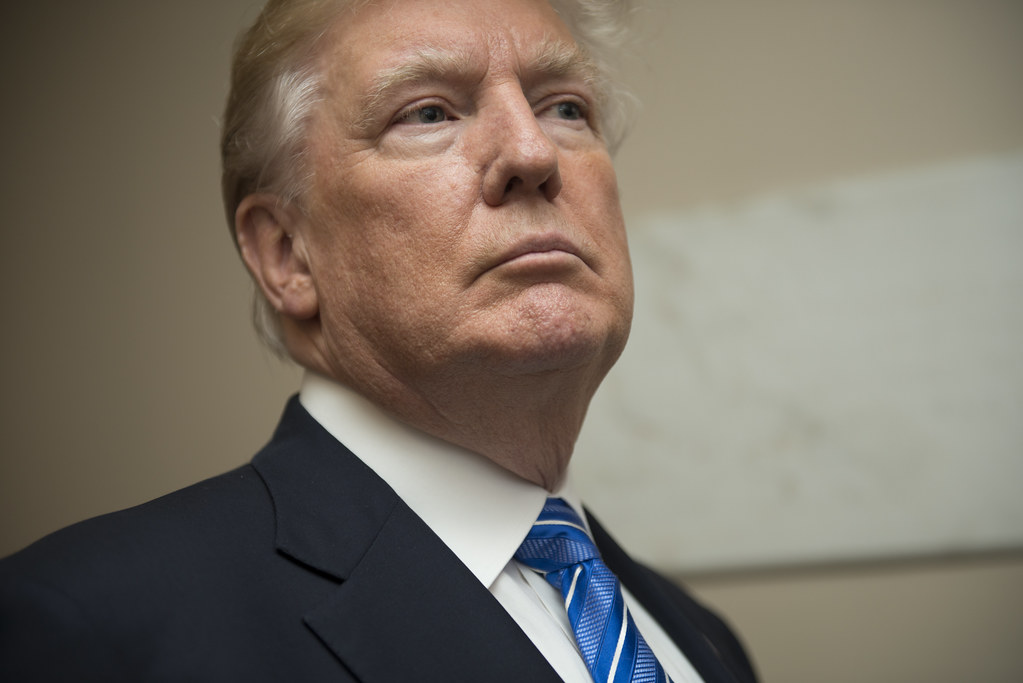Key Takeaways
- White House debates invoking the Insurrection Act to send troops
- Active-duty forces could perform searches and arrests under the Act
- National Guard now has limited support roles in cities
- Legal challenges and public outcry are already emerging
- A move would mark a major escalation in federal power
President Trump’s advisers are discussing whether to use the Insurrection Act. This law lets active-duty troops do police work in U.S. cities. If invoked, troops could search, arrest, and patrol streets. So far, the National Guard only fills support roles.
The talks follow the move to send Guard units to Los Angeles, Chicago, and Portland. Officials say those forces will fight crime and protect immigration agents. Yet active-duty troops would have more power under the Insurrection Act. A senior official said no decision is set. However, the shift would mark a big escalation in federal authority.
What Is the Insurrection Act?
The Insurrection Act dates to the early 1800s. At the time, it helped the president stop rebellions and riots. Under this law, active-duty troops can enforce laws on U.S. soil. That means they can make arrests and carry out searches. Normally, active-duty troops cannot act as police. Instead, the National Guard handles such roles when governors ask for help.
Why the President Might Act
President Trump has faced growing unrest in several cities. Officials argue that local leaders did not stop violence or protect federal agents. Therefore, advisers see a case for invoking the Insurrection Act. They say it could send a stronger message. Moreover, it might deter further attacks on federal buildings. Yet critics warn this could undermine democracy and spark more unrest.
Currently, the National Guard plays a support role. Those troops guard buildings, set up checkpoints, and assist local police. They cannot arrest people or search homes. If the Insurrection Act kicks in, active-duty forces would gain those powers. That is why the law holds such weight.
Limits of Current Guard Deployment
Today, governors control their state Guard units. Only governors can deploy them within state borders for public safety. When governors refuse, the president may try federal troops. For example, a judge blocked Guard units sent to Portland by Trump. The judge said the move broke normal state-federal rules. As a result, the administration said it might use the Insurrection Act “if necessary.”
Unlike the Guard, active-duty troops serve under the president. They operate under strict military rules. Under the Insurrection Act, they could work without local approval. Some experts worry this could bypass state and city leaders. Consequently, the balance of power between federal and local officials would shift sharply.
Legal Pushback
Courts have already stepped in to block moves tied to this effort. In Oregon, a federal judge barred out-of-state Guard units from Portland. The judge ruled state law and federal law must both apply. Additionally, civil rights lawyers warn that using active-duty troops could violate rights. They argue it may breach the First Amendment right to protest. Therefore, if the president issues orders under the Insurrection Act, lawsuits will follow.
Moreover, some legal scholars say invoking the Act without clear rebellion would be unlawful. They point out that recent protests, though sometimes violent, do not meet the law’s original intent. That intent was to quell armed uprisings against the government. Thus, they claim this move could face strong legal challenges all the way to the Supreme Court.
Public and Expert Reactions
Across social media, critics accuse the president of overreach. A Democratic congressional candidate slammed the plan as an attempt to suspend democracy. A law professor said in normal times, this would be grounds for impeachment. Journalists and community leaders called the idea reckless. They noted families worry about health costs, not military patrols.
Meanwhile, some defenders argue the Act gives the president a needed tool. They claim cities under siege need stronger intervention. They insist that federal agents have been hurt by protesters. According to this view, active-duty troops would protect federal property and staff. Yet most responses highlight the risk of more violence and fear.
What Happens Next
For now, no formal order has been issued. The president has signaled willingness but has not acted. In coming days, advisers will weigh legal opinions, public reactions, and political fallout. If the Insurrection Act is invoked, Congress and courts will likely challenge the move.
Citizens can expect heated debates in state capitals and Washington. Governors may refuse to cooperate. Courts will hear new lawsuits. And protests could spread or intensify. All this suggests a turbulent period if active-duty troops hit the streets.
Ultimately, invoking the Insurrection Act would reshape how federal power works at home. It would test the boundaries of presidential authority and civil liberties. With elections ahead, the stakes could not be higher.
Frequently Asked Questions
How does the Insurrection Act work?
The Insurrection Act lets the president send active-duty troops to enforce laws in U.S. states. It only applies when state authorities cannot keep order. Under the Act, troops may arrest people and do searches.
What would change under the Act?
Normally, active-duty troops cannot act as police. They may guard property, but not make arrests. If the president invokes the Insurrection Act, troops gain full law enforcement powers.
Could this move face legal challenges?
Yes. Courts have already blocked similar deployments. Lawyers say it could violate protest rights. Cases would likely reach the Supreme Court for a final ruling.
Why is this decision significant?
Using the Insurrection Act would mark a major expansion of federal power. It would shift authority from governors to the president. That could reshape how protests and riots are handled nationwide.
